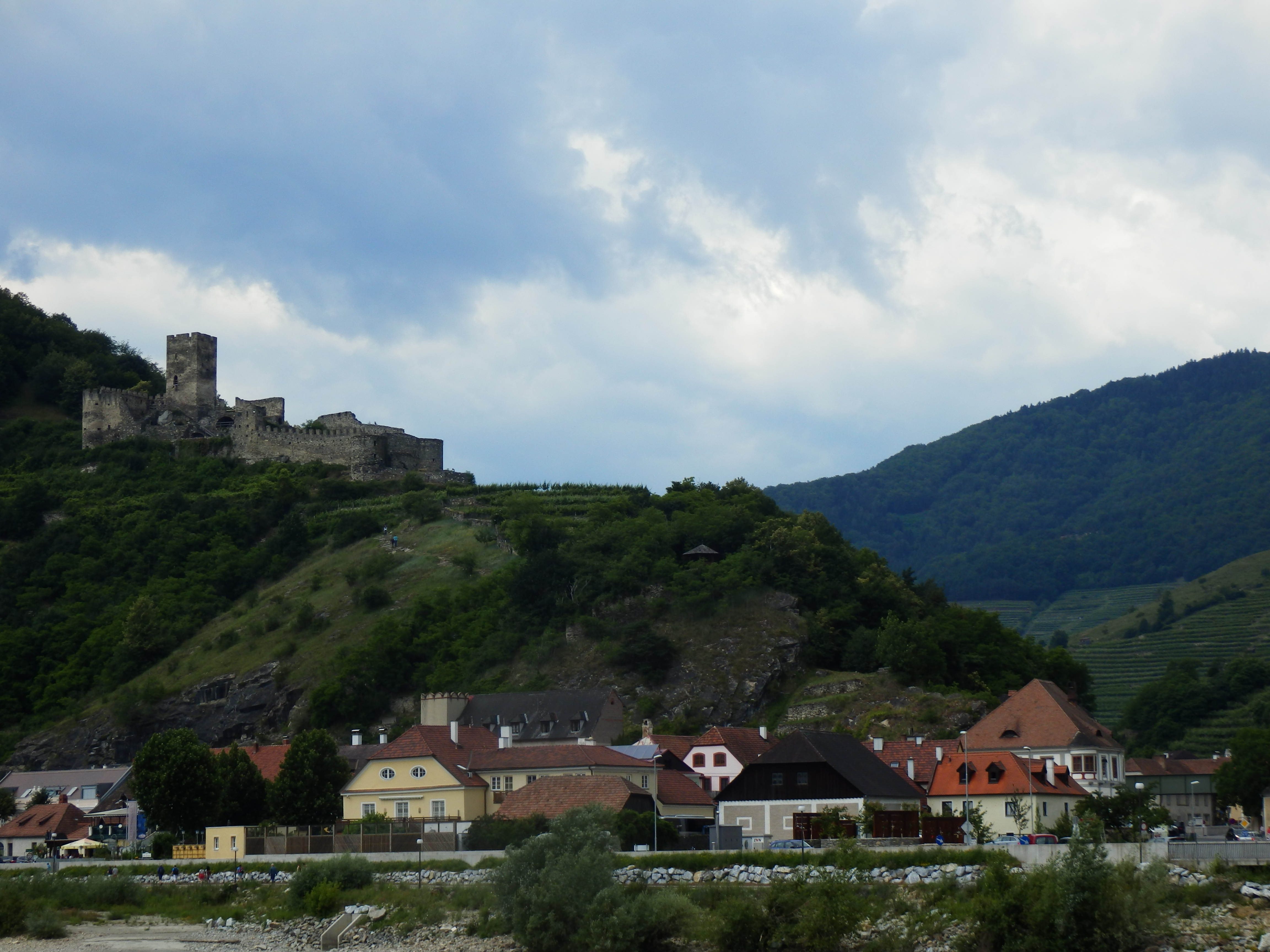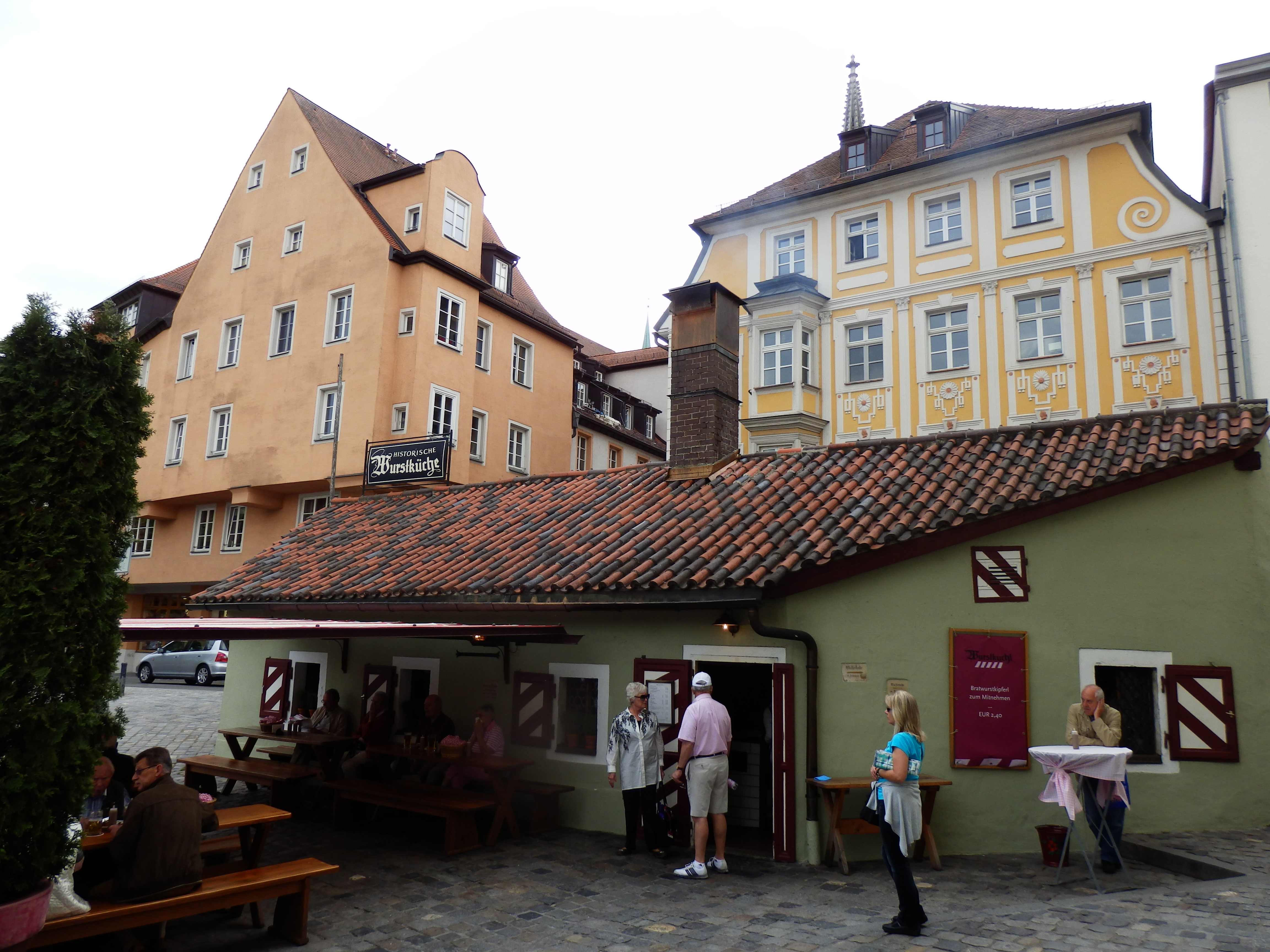Cruising through history: Danube River cruise offers time for exploration, examination
Sunday, July 13, 2014
Our Hamilton County home is our 20th residence in 36 years of marriage, so it's understandable that my wife and I often feel like a couple of Bob Dylan's "rolling stones." Remember the words? How does it feel, to be on your own, with no direction home, a complete unknown, like a rolling stone?
As I write this article, I'm listening to a Dylan album somewhere over the Atlantic Ocean on our flight home following a cruise on the Danube River from Nuremberg, Germany, to Budapest, Hungary. Dylan's lyrics and reflecting on the experiences of the last 10 days make me think it's not just my wife and I who are rolling stones; maybe the words describe the plight of humanity.
Let me explain.
The cruise was almost a surreal experience. As we floated peacefully past Roman ruins of cities built centuries before Christ, medieval castles, indescribably beautiful cathedrals and abbeys, impeccably manicured vineyards and fairytale villages nestled deep in steep mountain valleys, I was also immersed in reading "New South Old Money: The Spirit of Chattanooga." Everything I saw along the Danube seemed succinctly orderly and firmly built upon centuries of Celtic, Roman, medieval and "modern" history.
By comparison, it made the less than 200 years of recorded Chattanooga history seem relatively shallow. Yet, even though we are a young civilization, Americans display just as much confidence and pride in our roots as those folks along the Danube whose countries endured titanic political, economic and social upheavals throughout their history. So, in the bigger picture, who is not a rolling stone?
Like our own Tennessee River, the Danube is an ancient highway through an ancient land. Composer Johann Strauss wrote a symphony titled "Blue Danube" 150 years ago and, from it, many imagine the Danube as a peacefully flowing, idyllic river through the heart of a majestic landscape.
During an evening excursion from our boat, The Amadeus Royale, we sat spellbound as an orchestra in a beautiful Vienna symphony hall performed the masterpiece; however, I can assure you the Danube is neither blue, nor does it flow in graceful harmony like Strauss' notes through a peaceful land. It is a grey-brow, forcefully flowing body of water that can quickly transform into a fearsome torrent that has claimed many lives. Furthermore, despite the peaceful veneer of the land today, the river cruise uniquely tells the story of a constantly embattled land and leads one to ponder the historical lessons from centuries of war.
River cruises are gaining popularity for several reasons. First, they are relaxing. We've taken a number of cruises on large ships in Alaska, the Mediterranean and the Caribbean. While their large-scale dining and entertainment may be appealing, the constant bustle of several thousand people, the process of entering and exiting the ship, and the Venturi effect of thousands of your shipmates trying to see and do as much as possible during short shore visits can be tiring.
River cruises offer a more laid-back alternative. You set your own pace, and the scenery constantly changes so the journey becomes part of the vacation itself, not a temporary conveyance to another place. Additionally, because the pace is slower, it attracts a different crowd. If you are looking for glitzy singles clubs, gambling casinos, non-stop food service or Las Vegas-style shows, I would not recommend a river cruise.
Our fellow passengers were experienced travelers who wanted to learn, to relax, to enjoy fine cuisine and music and to make new acquaintances. As we progressed from the Alps in Bavarian Germany and Austria through Vienna - sometimes referred to as the "door to the Orient" - to the eastern European culture of Hungary, the gentle pace of the cruise allowed us to clearly understand the history and cultural changes far better than I anticipated.
River cruises also allow you to easily see more places, especially in Europe. The fall of the Iron Curtain that divided the continent, along with the ease of crossing political borders and the use of ATMs and a common euro currency (in most countries), make the logistics of traveling not nearly as complicated as it was a few years ago. Additionally, the relative drop in the cost of international air travel and the ability to make one's own arrangements via the Internet are appealing.
There are a variety of river cruises and companies on almost every continent. Gate One, the company we sailed with, has cruises in North and South America, Africa, Asia and Europe. Our director, Mick Josa, explained to me that the Gate One motto is, "Delivering the best of the world for less."
They certainly lived up to our expectations. The cabins were clean and comfortable, and the view from our balcony was awesome. The meals were delicious and the food presentation and service were outstanding; the casual, flexible seating at meals allowed us to get to know most of the 150 of our fellow passengers, who were all from North America.
Finally, both onboard and on-shore lectures and tours were informative, never boring and always allowed ample free time to explore on our own or to return to our cabin and relax. For instance, in Regensberg, Germany, we got off the beaten path and had bratwurst at a small outdoor café that has served sausages and beer since the 12th century, when workers ate there while constructing the Steinerne Brucke ("Stone Bridge"), which is still in use.
As we return to our home in the Tennessee River Valley, we realize we may be rolling stones in some ways, but we are hardly alone as voyagers in the long journey of life. The ancient Celts in Central Europe gave way to the Romans 2,500 years ago, who gave way to the Huns and Magyars 1,500 years ago who, in succession, gave way to various medieval kingdoms to totalitarian regimes like Nazis and Communists and, eventually, to democratic nations.
Likewise, our own ancient lands gave way to a plethora of native American civilizations, European pioneers, the states of Franklin and Tennessee, and the United States. We are part of a grand adventure, and life is truly more of a mystery to be lived than a problem to be solved. Vacations are supposed to make you escape from the routine and think such esoteric thoughts. Mostly, it makes me glad this rolling stone came to rest in our little corner of the world and in the greatest country on earth.

